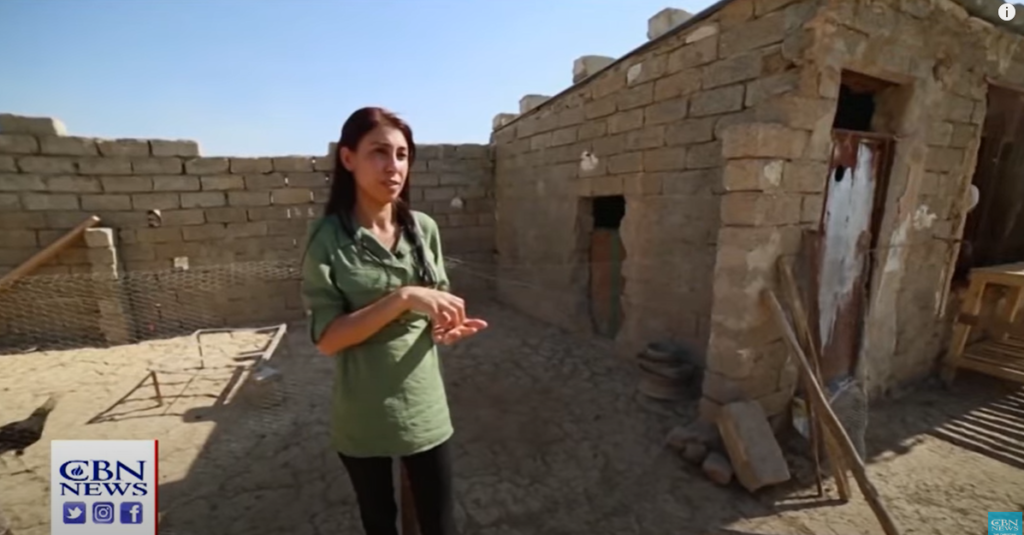By: Chuck Holton
Six years ago, Leila Taalo was kidnapped by ISIS along with her entire family. They are Yazidi, an ancient people who were brutally oppressed by ISIS when the terror group flooded into their area in Northern Iraq in 2014.
YouTube
After their capture from their home in Sinjar, her family was forcibly converted to Islam. This allowed her family to live as second-class citizens for a while, working for the Islamic State mainly as herders, along with other Yazidis who were moved there.
“This is the room where my husband and I were living,” Taalo explained.
But after some Yazidis escaped, the militants gathered all the men and took them away, never to be seen again. Many were killed and dumped into a sinkhole, where their bones can still be seen whitening in the sun.
“We knew that they were going to take us out of this house. We were worried about the mobile phones, that they would find out that we had mobile phones,” Taalo said. “So my brother’s wife and I took the two mobile phones and buried them here. We hid them in the ground, and there were cigarettes too.”
Without her husband to protect her, Taalo and her two children were sold as slaves. She and other Yazidi women were traded like livestock and raped repeatedly by every new owner. Twice she became pregnant, but the Saudi man responsible forced her to abort the babies, even though it was forbidden by ISIS.
The city of Sinjar was liberated by Kurdish Peshmerga forces in late 2015. Days afterward CBN News Contributing Chuck Holton toured the empty city.
“You know if you ever heard of the city of Stalingrad in WWII, this is what I imagine it looking like,” Holton said. “Everything just collapsed, destroyed. It’s just a wrecked and shattered city. It just goes to show ISIS only comes to kill, steal, and destroy. Just like someone else we know.”
Dr. Anne Speckhard, director of the International Study for Violent Extremism, has interviewed dozens of escaped Yazidi women and their families.
“One Yazidi family I spoke to was step by step buying their daughters back from ISIS. And it tells you there is something corrupt and horrible going on that ISIS is still able to operate. ISIS treated these women as sub-human, subjected them to rape, and treated them as slaves,” Speckhard explained.
Finally, after being abused by at least seven different men, Taalo’s family was able to secure her release by paying a ransom of over $19,000. She recently took journalists back to see where her ordeal took place.
“All these houses were full of Yazidi families. They were living here,” she said.
“I wish I was back in the past, even if I was in the hands of the Islamic State, but at least I was living with my family here, my brothers and my husband were alive, no matter how long (the captivity), five years or more, as long as we are together and not separated,” Taalo explained. “Regardless of the suffering and no matter what happens but not to lose them.”
The systematic abuse of women continues in many places, but only under ISIS was it given theological justification, and many women have yet to be freed. According to Kurdish authorities, at least 2,900 Yazidis have yet to be returned to their families, including more than 1300 women and girls.
“When I was here, I never thought that one day I would be free. Now I am here and I am free, thank God. But I will never forget the suffering they caused us,” Taalo said.
But for Leila and those still waiting, closure won’t come until every Yazidi girl comes home.



